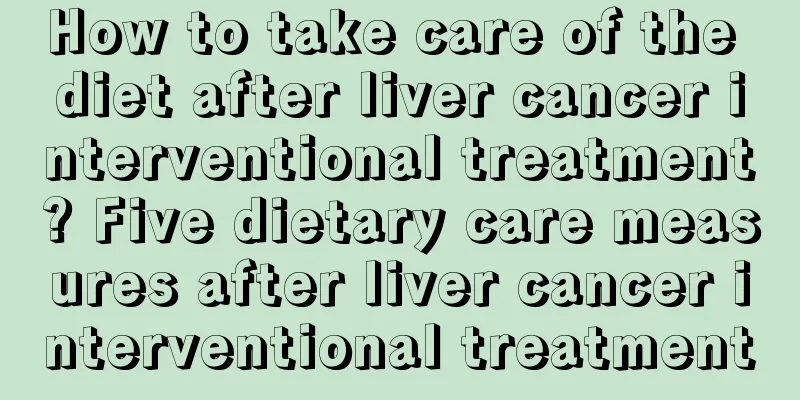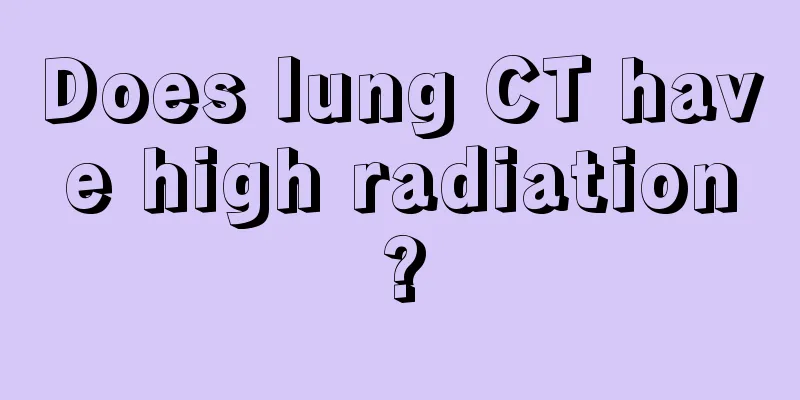How to take care of the diet after liver cancer interventional treatment? Five dietary care measures after liver cancer interventional treatment

|
Post-embolization syndrome is the most common adverse reaction to interventional hepatic artery embolization chemotherapy, which is mainly manifested by fever, pain, nausea and vomiting. The causes of fever and pain are local tissue ischemia and necrosis caused by embolization of the hepatic artery, while nausea and vomiting are mainly related to chemotherapy drugs. In addition, there are other common adverse reactions such as bleeding at the puncture site, decreased white blood cells, transient abnormal liver function, renal function damage and difficulty urinating. Generally speaking, the adverse reactions after interventional treatment will last for 5-7 days, and most patients can fully recover after symptomatic treatment. During this period, some dietary care can be carried out: 1. For those who have nausea and vomiting, they can take ginger and give them non-irritating and easily digestible food; eat small meals frequently and try to take care of their original eating habits; the food should be kept at a suitable temperature; they should not drink too much water when eating; they should eat slowly; they should not lie flat for half an hour after a meal; and they should not eat greasy or fried food; 2. For patients with severe vomiting, antiemetics can be given, and a few drops of ginger juice can be dropped on the tongue before eating, and wait for a while before eating. If necessary, total intravenous nutritional support can be given. 3. Patients with abdominal pain can add appropriate amounts of sesame oil and vinegar to the food they eat, which has an analgesic effect. Those with severe ascites should limit their water intake, be given a low-sodium diet, and avoid pickled foods. Sweet and sour cooking methods can be used to adjust the taste. Those with jaundice can eat lily, loofah, water chestnuts, sesame oil, etc. to help reduce jaundice. 4. When accompanied by decompensated cirrhosis, high-quality protein should be given, with the limit being 75g per day. 5. People with high blood ammonia should limit or abstain from protein, and the main source of heat energy should be carbohydrates. Fresh fruits and vegetables can be selected. 6. Patients with fever should drink more water to help dissipate heat. |
<<: What are the common causes of lung cancer? Five common causes of lung cancer
Recommend
What are the key points in the treatment of advanced lung cancer?
What are the key points in the treatment of advan...
What's wrong with the ringing ears
If there is no sound of ants outside, but you can...
What should liver cancer patients pay attention to in their diet
Liver cancer is a tumor that is extremely harmful...
What are the symptoms of thyroid cancer
What are the symptoms of thyroid cancer? If you d...
Cactus external application
Cactus is a plant that many people like to grow. ...
My calves feel heavy when I walk
Many people may have experienced the feeling of h...
Are there symptoms of frequent urination in nephritis?
Nephritis is a common disease, and its incidence ...
Which is better, sweat steaming or sweating during exercise?
Anyone who has done sweat steaming knows that you...
Hepatitis A symptoms self-test_How to check hepatitis A
I believe many people do not know what the sympto...
What does pharyngeal muscle spasm feel like?
Pharyngeal muscle spasm is not a common disease i...
How long can you live with advanced brain cancer
Before dying, the patient may show the following ...
Open up the buttocks meridians by yourself
In fact, in daily life, many movements require th...
How to use lavender essential oil to remove scars
Lavender essential oil is a beauty and skin care ...
The effect of beer on muscles
Beer has a relatively large impact on muscles bec...
What to do if you can't do push-ups
Push-ups are currently a popular exercise that ca...









